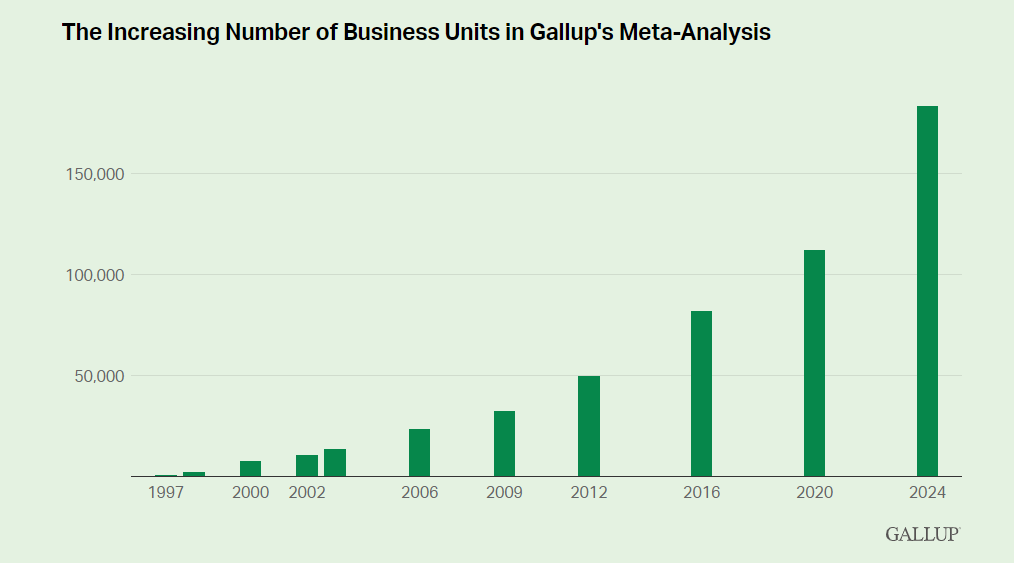For the past 25 Years, Gallup has measured business engagement.
Over more than a quarter century since, that Gallup study has been updated and replicated 11 times, with some iterations published in top academic journals.
The original 1998 study included 2,528 business units and teams from 24 companies. It has since grown to 183,806 business units from 736 research studies. Overall, Gallup has surveyed 64 million employees on topics related to employee engagement and wellbeing, and conducts the only global representative sampling of employees, updated annually in its State of the Global Workplace report.

What is employee engagement?
Employee engagement is the involvement and enthusiasm employees have for their work and workplace. Gallup measures engagement through a composite of 12 workplace experiences, including role clarity, resource availability, recognition for good work, development on the job, opinions counting, connection to a mission or purpose, coworker relationships, and work progress.
Why is this important?
Stock performance and earnings, the outcomes leaders care most about, are highly influenced by how teams produce within their organizations. These financial results are downstream from other business outcomes such as customer loyalty, retaining top talent, productivity, quality of work, and reducing accidents and other avoidable costs.
Gallup’s research shows that its metric is highly changeable across time when leaders implement the right strategies, communication, manager development and accountability. The best organizations Gallup has studied reach 70% or more engaged employees — more than three times the global average.
Organizational leaders face increasing demands, and their jobs have never been more challenging. Too often, well-intentioned leadership priorities encounter resistance within the organization or fail to be executed. This is often because manager-led teams are not aligned with each other or the organization’s higher aspirations, which is why leaders must build organizational culture through great managing at all levels.
Gallup’s decades-long study of workplace culture and business performance provides science-based evidence that leaders can build great companies with great cultures that achieve their financial and societal objectives — if they create systems that continually improve the quality of managing. Great managers, who are closest to their employees, are the key to inspiring extraordinary performance.

